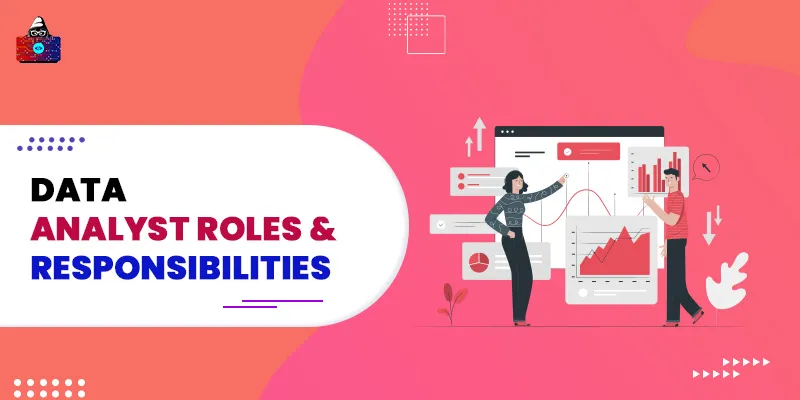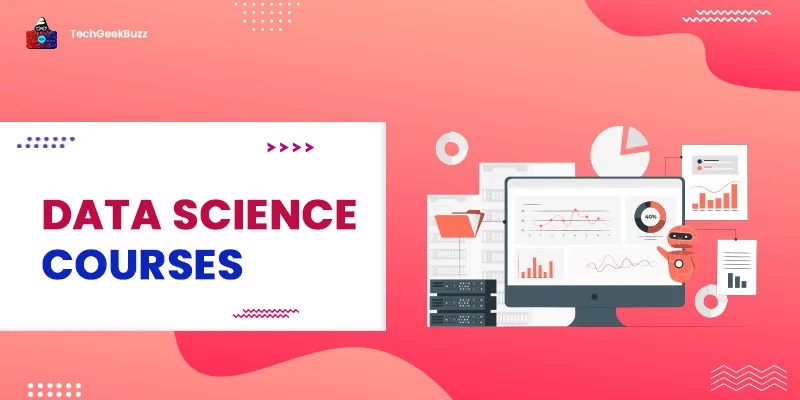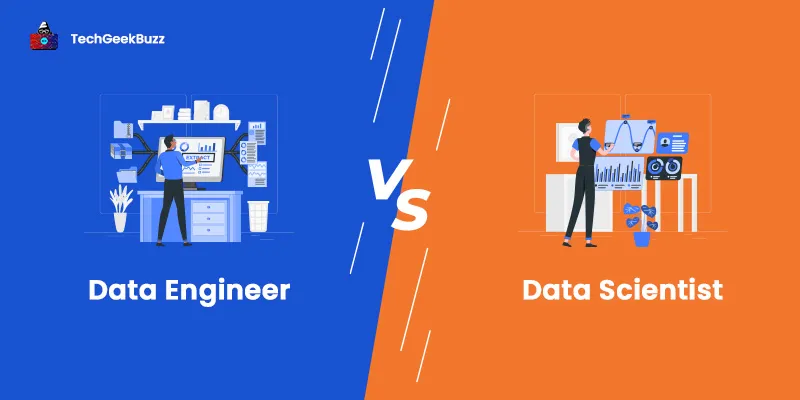Companies today heavily rely on data to make informed decisions, achieve business goals, and enhance customer experience. Over the past decade, data has changed the way organizations function. Whether small or large, every business deals with volumes of data sets to derive insights from them. This is where the role of data analysts comes into play.
They collect and interpret data sets and transform them into meaningful information, helping businesses make better decisions. These decisions may include which products to launch, what features to include, what markets to enter, which type of audience to target, etc.
In addition, these professionals help companies by addressing weak areas and proposing solutions to business problems using data.
With tremendous amounts of data generated daily, businesses seek highly skilled data analysts.
According to GlobeNewswire, the data analytics market is expected to reach $132.90 million at a CAGR of 28.9% by 2026 .
Due to these reasons, a data analyst’s job is the most convincing in the market as well as challenging and rewarding! As great as the salary package, the job also has varied responsibilities.
In this article, let us discuss the roles and responsibilities of a data analyst.
Who is a Data Analyst?
A data analyst is a professional in charge of collecting, cleaning, and analyzing/interpreting large data sets to uncover hidden patterns and trends and use them to design solutions to various business problems. They share the desired information or meaningful insights with stakeholders and business owners.
To do so, data analysts leverage complex statistical and computational techniques, like predictive analytics , data mining, machine learning, and data visualization, data analysts. Their primary objective is to provide businesses with meaningful and beneficial recommendations that help them achieve their goals and improve operations.
Furthermore, these data professionals work in different industry verticals, such as business, finance, science, medicine, criminal justice, and government.
Being a data analyst requires sound technical knowledge and analytical, problem-solving, and communication skills. They should be proficient in computer science, mathematics, and statistics.
Do you remember the crazy statistics of school days?
I used to wonder during school days – what is the use of so many formulae? Mean, median, standard deviation – why do we even need these? Statistics involves working with numbers extensively without knowing much about their practical applications of it.
That’s not true anymore!
It seems cool now that we have statistics as a mandatory subject in school because everything is the same – just as we learned it!
As a data analyst, one can see great things happening using everything learned during childhood!
Starting your journey as a data analyst is fruitful, even if your ultimate goal is to become a data scientist. Because of its wide scope, it would be a great way to start or resume your career as a data analyst to gain both technical expertise and domain experience.
Roles and Responsibilities of a Data Analyst
Here are some common roles and responsibilities of data analysts working in various industries:
- Data Collection: Collect and organize data from heterogeneous sources in a single place.
- Data Cleaning and Preparation: Going through the collected data to identify errors, duplicates, missing values, and any other inconsistencies. In short, data analysts convert raw data into an understandable format. They remove redundancy, add missing information, eliminate errors, and reduce data inconsistencies.
- Maintaining Databases: They store data in database management systems and maintain them.
- Quality Assurance: These professionals ensure the reliability, completeness, and accuracy of the data being analyzed. They perform quality checks to verify that data is error-free and has no inconsistencies.
- Data Analysis: Data analysts use statistical analysis, predictive analytics, and data mining to analyze data and identify trends and patterns.
- Data Visualization: They represent vital findings in the form of visuals using various data visualization tools, making it easy for other team members to understand. They provide these insights to data scientists , ML engineers, and other professionals.
- Creating Reports: Data analysts create detailed reports of their findings and share them with stakeholders, helping them make profitable decisions.
Types of Data Analysts
These professionals work in different industries and are classified into different types. Also, their roles and responsibilities vary depending on the industry vertical.
1. Healthcare Analysts
These professionals collect data from multiple sources and analyze it to improve healthcare outcomes. Their primary objective is to derive useful insights and recommendations from data to help hospitals streamline healthcare processes and provide the best patient care. They generally associate themselves with the business side of medicine.
Roles and Responsibilities
- Collect data from heterogeneous sources. This data comprises patients’ records and clinical, financial, and operational data.
- Clean, transform, and organize data into a database management system (DBMS).
- Uncover hidden trends and patterns using data analysis.
- Use data visualization tools to present the insights in a digestible form.
- Share them with healthcare professionals, such as doctors, nurses, administrators, and others.
In short, healthcare analysts work to improve healthcare quality and enhance patient care.
2. Market Research Analysts
Also, sometimes called market researchers, market research analysts collect different data, such as customer data, customer behavior, competitors’ data, sales trends, campaign data, market data, etc., analyze it, and derive actionable insights. These insights help businesses maintain their competitive edge in the marketplace.
In addition, these analysts study survey responses, trending keywords, social media mentions, etc., and assist businesses in launching successful campaigns and products.
Roles and Responsibilities
- Collect data from various sources, such as social media, surveys, product reviews, etc. The data focuses on market trends, competitors, customer details, campaigns, and customer behavior.
- Use data analysis techniques to analyze and interpret collected data.
- Derive data-backed insights and share them with stakeholders and business owners.
- Help create effective marketing campaign strategies and recommend product prices, promotion, and distribution.
In a nutshell, market research analysts help companies gain an edge over their competitors with informed marketing strategies.
3. Business Analysts
These professionals leverage data associated with a specific business, analyze it, and derive insights to help an organization improve its processes and operations. They provide beneficial recommendations and changes in business strategies, identify potential issues in any aspect of the business, and provide solutions to help an organization achieve its goals.
Roles and Responsibilities
- Collect and analyze business requirements, problems, and opportunities.
- Documenting requirements clearly and concisely.
- Help the technology team to understand business requirements and create solutions accordingly.
- Act as an intermediate between business stakeholders and the technology team.
- Proposing solutions to improve business processes.
Simply put, business analysts assist organizations in improving their processes with data-driven insights.
4. Operation Research Analysts
They are high-level issue solvers helping organizations improve their operations and logistics backed with data-driven decisions. They are highly skilled professionals and leverage data mining, mathematical modeling, and statistical analysis to help businesses solve issues related to operations and logistics.
Roles and Responsibilities
- Identify issues occurring within an organization.
- Find relevant solutions and develop plans accordingly.
- Share the idea of solutions with employees and gain their feedback.
- Gathering and interpreting data to implement solutions.
- Communicate results with business partners and stakeholders.
- Help management to develop strategies to improve their business processes.
In short, operation research analysts help organizations function effectively and efficiently.
5. Business Intelligence Analysts
BI analysts collect and analyze data, such as a company’s sales, revenue, market information, customer engagement, etc., and extract insights to help businesses make sound decisions. They use data modeling , analysis, and visualization tools to unearth trends and patterns in data.
Roles and Responsibilities
- Collect organizational data, such as financial, employment, revenue, and expenditure reports.
- Use various business intelligence tools, such as Tableau and Power BI, to load and transform data into a form suitable for analysis.
- Find patterns and trends and create relevant reports and dashboards.
- Share findings and recommendations with business stakeholders.
- Monitor key performance indicators (KPIs) to identify areas of improvement and track business performance.
Putting it simply, business intelligence (BI) analysts help organizations make informed, data-driven decisions.
6. Intelligence Analysts
These professionals work in intelligence to analyze data and uncover insights to mitigate security issues. They collect data from different sources to evaluate threats and prevent attacks. A few data sources include databases , field reports, and internal and external statistics.
Roles and Responsibilities
- Collect information from different sources, such as human intelligence (HUMINT), signals intelligence (SIGINT), and open-source intelligence (OSINT).
- Ensure the reliability and credibility of information.
- Analyze collected information and develop reports of findings.
- Share findings with policymakers, law enforcement agencies, and stakeholders.
Skills Require To Become a Data Analyst
Here are a few essential skills you must develop to become a data analyst:
- Knowledge of programming languages like Python, R and MATLAB .
- Strong mathematical and statistical skills.
- Knowledge of database languages, like SQL.
- Hands-on experience with data analysis and visualization tools like Qlik, Power BI, and Tableau .
- Knowledge of ETL and experience with ETL tools.
- Proficiency with statistical packages, such as Excel, SAS, etc.
- Knowledge of data processing systems, like Apache Spark and Hadoop .
You also need soft skills as follows:
- Analytical and creative thinking.
- Attention to detail.
- Problem-solving skills.
- Excellent communication skills.
- Teamwork capabilities.
Check out in detail: Data Analyst Skills
Qualification
Besides the abovementioned skills, one must hold a bachelor’s degree in computer science or the field emphasizing statistical and analytical skills. If you do not possess a degree, you can opt for a data analytics boot camp and learn the nitty-gritty of data analysis.
With qualifications and skills, you must practice and develop projects to hone your skills.
Why Become a Data Analyst?
If you are from a programming background, you can easily enter the field of data analysis. If you are not, you can still enter this field by doing some additional courses and certifications.
Check out: Best Data Analytics Certification and Best Data Analytics Courses
There is a lot more to learn and explore than you would think. A data analyst must be adept in technical and analytical skills, have excellent communication skills, and have a business mindset. This means that even after you do certifications and learn all the technical skills, you will still be challenging yourself on many other skills, be it your attention to detail, accuracy, or analytical thinking.
Here are some reasons to consider becoming a data analyst:
1. In-Demand Skill
With quintillions of data available daily, companies are looking for skilled professionals who can transform raw data into knowledge or useful information. As a result, data analysis has emerged as one of the most in-demand skills. With all essential data analyst skills, you can easily land a job in any industry vertical.
2. Earn Sky-High Salaries
Being sought-after by companies, these professionals earn handsome salaries and stand among the highest-paying IT jobs . The average salary of a data analyst in the United States is $65K per annum. Professionals with 5 to 9 years of experience receive $73K per annum, and more than 10 years of experience earn above $75K per annum.
Want to know how much a data analyst can earn? Check it out here .
3. More Job Opportunities
You can start your career as a data analyst, gain experience, develop new skills, hone existing skills, and move on to the path of becoming a data scientist. Even in the beginning, you can work in a variety of domains, such as healthcare, finance, security, government, etc. Hence, you get a wide range of opportunities as a data analyst.
4. Challenging and Growth
As this job role is pretty challenging and requires one to possess and develop a broad spectrum of skills, it witnesses immense growth. Also, data analysts work with complex data to find solutions to challenging business problems. This, in turn, helps them hone their problem-solving and creative thinking skills.
Conclusion
Data analyst jobs are most popular in banks, financial institutions, telecommunication companies, digital marketing, the pharmaceutical industry, the logistics and manufacturing industry, public sector organizations, consultancies, and even in colleges and universities. That makes it predominant in almost every sector that is possible today.
Data analysis is generating a lot of jobs and is a promising niche to take up in the future, and that’s why it is important to know the right roles and responsibilities so that you are prepared to take up the job of your dreams.
People are also reading:





Leave a Comment on this Post